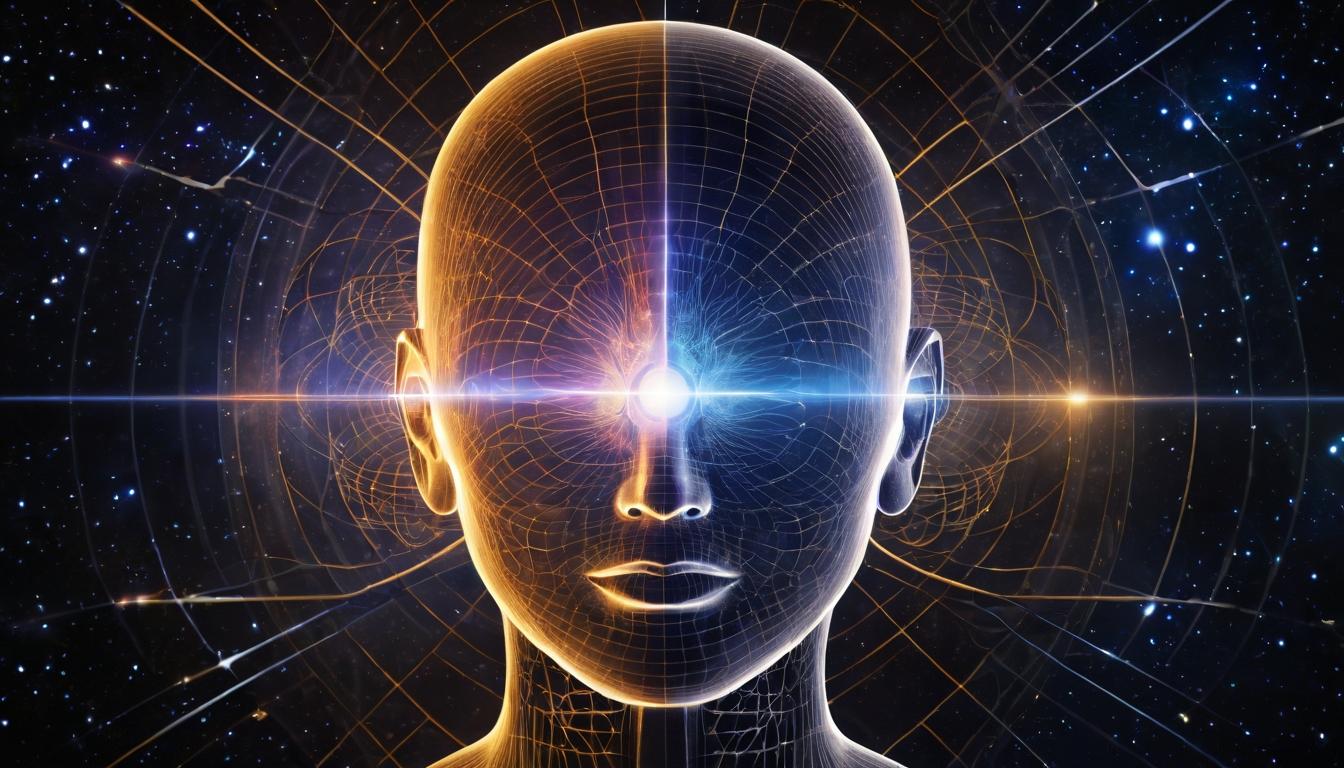In the quiet moments between breaths, when the mind settles and the world seems to pause, something extraordinary happens. The ancient mystics knew it, the quantum physicists are proving it, and your morning meditation might be tapping into it: consciousness doesn't just perceive reality—it participates in creating it.
The double-slit experiment, that cornerstone of quantum mechanics, reveals something that should make every rational mind stumble. When scientists fire particles at a barrier with two slits, they behave differently when observed versus when unobserved. Without an observer, particles act like waves, creating interference patterns. The moment someone looks, they snap into definite particles. It's as if reality holds its breath until consciousness gives it permission to exist.
This isn't just laboratory curiosity. Eastern philosophies have whispered this truth for millennia. The Hindu concept of Maya suggests the world is illusion, while Buddhist teachings emphasize the mind-dependent nature of reality. The Upanishads declare 'Tat Tvam Asi'—thou art that—implying the observer and observed are fundamentally connected.
Modern neuroscience adds another layer to this mystery. Your brain doesn't passively receive information like a camera recording footage. It actively constructs your experience moment by moment, filtering, interpreting, and shaping raw sensory data into what you perceive as reality. Two people can witness the same event and walk away with completely different stories—not just different opinions, but fundamentally different experiences.
Consider the placebo effect, that pesky phenomenon that frustrates pharmaceutical companies and delights healers. When patients believe they're receiving medicine, their bodies often produce real physiological changes—even when they've swallowed nothing but sugar pills. Belief becomes biology. Expectation transforms into cellular response. The mind doesn't just influence the body; it speaks to it in the language of molecules.
This consciousness-reality connection might explain why meditation and mindfulness practices have such profound effects. When you sit in stillness, observing your thoughts without judgment, you're not just reducing stress—you're potentially interacting with the fabric of reality itself. The observer effect suggests that the quality of your attention might influence what manifests in your life.
Quantum entanglement adds another fascinating piece to this puzzle. When two particles become entangled, they remain connected regardless of distance. Change one, and the other instantly responds—faster than light could travel between them. This 'spooky action at a distance,' as Einstein called it, hints at a deeper unity beneath the appearance of separation. Perhaps consciousness operates through similar non-local connections.
The implications ripple through every aspect of life. Your expectations about your health, relationships, and success might not just predict outcomes—they might actively create them. The stories you tell yourself, the beliefs you hold, the attention you focus—these aren't just mental activities. They might be creative acts that shape your world.
This doesn't mean you can simply wish things into existence while sitting on the couch. The observer effect works within the constraints of physical laws and probability. But it does suggest that consciousness plays an active role in collapsing quantum possibilities into concrete reality. Your focused attention might be the catalyst that brings potential into actuality.
Practical applications are already emerging. In healing modalities like mindfulness-based stress reduction and quantum healing approaches, practitioners work with the mind-body connection in ways that acknowledge consciousness as participatory. Even in business, the concept of 'manifestation' has moved from mystical concept to strategic tool, with visualization techniques used by athletes and entrepreneurs alike.
The ethical dimension deserves consideration. If consciousness shapes reality, then collective consciousness shapes our shared world. The quality of our attention—what we focus on, fear, or love—might have tangible effects beyond our individual lives. This perspective invites responsibility alongside possibility.
Perhaps the greatest mystery is why we experience consciousness as individual in the first place. If reality is fundamentally interconnected, why do we perceive separation? Some theories suggest consciousness is the fundamental property of the universe, with individual minds like waves on an ocean of awareness. Your personal consciousness might be both unique and fundamentally united with all that is.
This isn't about abandoning science for mysticism. It's about expanding our understanding to include both. The scientific method remains essential, but perhaps it needs to make room for the scientist—the conscious observer—as part of the equation being studied. The most exciting research happens at these boundaries between disciplines, where physicists talk to meditators and neuroscientists study monks.
The next time you find yourself observing anything—a sunset, a challenging situation, your own thoughts—remember that you're not just a passive witness. You're a participant in the grand dance of reality, with your attention serving as both window and sculptor. The universe might be looking back through your eyes, wondering at its own creation.
This perspective doesn't solve all mysteries, but it makes life more interesting. It suggests that your consciousness matters in a fundamental way—that how you pay attention changes what you find. In a world hungry for meaning, that might be the most practical magic there is.
The quantum observer effect: how consciousness shapes reality

